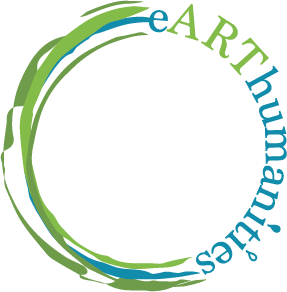Students
eARThumanities encourages students to explore the extensive list of courses offered as part of the Environment minor at NYUAD and other classes across the disciplines that focus on environmental issues.
Courses
Courses offered under the Environment Minor:
City in Crisis: Refuge and Resilience
Coastal Urbanization and Environmental Change
Where the City Meets the Sea: Studies in Coastal Urban Environments(offered occasionally)
Oil and Energy in the Middle East
History and the Environment: The Middle East
Protecting the World’s Health: Triumphs and Challenges
Well-Being and the Design of the Built Environment
Economic Development and Environmental Change in China
Renewable Energy Law and Policy
Making the Anthropo[s]cene: Figuring Climate Change Across the Arts
Other course offerings across disciplines include:
Anthropology of Forced Migration
Emergence of the Modern Middle East
Silk Roads, Sea Routes and Shared Heritage
Economic Development and Environmental Change in China
Renewable Energy Law and Policy
Letters from Afar: Travel Writing Abroad
Art and Architecture Reinventing the City
Gustė Gurčinaitė on Climate Action and the Rhodes Scholarship

What motivated you to pursue a climate-related career?
My interest in climate sparked in my second year at NYU Abu Dhabi when I began noticing patterns in the world around me of how climate change mostly impacts people who are already disadvantaged. From reading how women are more likely to die from environmental disasters to recognizing that the livelihoods of people in the least developed nations are the most threatened by climate change – I understood that environmental inequality cuts across communities and nations.
At the time, social justice was already a big issue that I cared about from my prior engagement in the gender equality field, so I was eager to dive deeper and understand how climate change might work as a threat multiplier for vulnerable communities.
Over the summer, you interned at a climate technology firm in Madrid. You also did a climate-related internship during your semester in DC. What are some of the key takeaways from your experience?
In the Spring of 2022, I joined the Middle East Institute in Washington D.C. as a Research Assistant for the United Nations project and helped build a roadmap for the MENA countries on the transition to sustainable mobility. Here, I witnessed first-hand how an intersectional approach can win a strong buy-in from policy-makers, as the UN Economic and Social Commission for Western Asia strongly endorsed our policy recommendations focused on improving societal outcomes through sustainable transport that will shortly be delivered in a High Ministerial Meeting of MENA countries. Subsequently in the Summer of 2022, as a Research Assistant at the EIT Climate-KIC in Berlin, I helped increase funding for climate innovation projects in Europe by designing a novel blockchain-based solution. Driven by my commitment to social justice, I especially focused on enabling projects in non-mainstream areas, like biodiversity loss and environmental justice, which the organization’s leadership commended. Overall the key takeaway from my professional experiences is that critical social sciences can bring great value to the environmental field by helping to pinpoint the social risks of the sustainable transition and build broad and inclusive coalitions of support.

How have you incorporated sustainability into your work at NYU Abu Dhabi?
At NYU Abu Dhabi, I have used the Liberal Arts Curriculum to explore and deepen my understanding of how the climate crisis intersects with social issues such as inequality, political divisions, and social conflict. I did so by simultaneously pursuing courses in Political Sciences, Legal Studies, Gender Studies, and Environmental Studies and applying an intersectional approach to study different aspects of a just sustainable transition in my course projects. Currently, I continue fusing Social Sciences and Environmental Studies in my Capstone Project, where I am studying how energy poverty affects the attitudes of European households toward clean energy transition using a survey experiment. Outside of classes, as a Program Director of the Student Embassy-Ambassador Liaison Program, I am seeking to build momentum around the importance of climate change in foreign policy and diplomacy by initiating a Climate in Diplomacy Series with distinguished guests from the diplomatic corps community in the UAE and international organizations.
Hannah Greene –– nature, adventure and exploration

What inspired your interest in the field of sustainability?
My sense of caring about the planet emerged from exploring nature and being disturbed by how much damage is inflicted on the environment. I grew up climbing trees, hiking, and going on multi-day canoe trips, discovering from an early age a dependence on being outdoors to find peace and groundedness. A huge part of this came from the Henry Hall Program at the National Aquarium in Baltimore, a scholarship program for public school students in Baltimore City to engage in marine conservation throughout the Atlantic watershed each summer. In high school, I worked at a vegan activist organization, and there I learned about the systematic destruction of the planet on a broader industrial level.
After my first year at NYUAD, I went to a remote island in Kenya to live on a farm and do hands-on work in the soil. We collected plastic trash from a beach, only to pile it into a hole nearby and burn it. This was a wake-up call from my U.S. upbringing, where I’d grown up in a community that liked talking about environmentalism, but mainly as an abstract, surface-level ‘save the sea turtles’ type of sustainability. I finally saw that there is no such thing as “away” in “throwing away” what we perceive as waste. By living with a host family in a remote part of Kenya without the privilege of the mythical “away,” I finally saw how unequal my ideas and implementation of celebrated sustainable living had been. In a place without a formal water supply or waste management, I finally realized how environmentalism cannot be just an additive sub-thought on lists of things we should care about — it is central to all of them. I saw how environmental health intersects with toxic chemicals, colonialism and underdevelopment, and every other issue, seeing the injustice in environmental degradation and how it can’t be ignored.
How have you implemented sustainability in your work and personal life?
Each summer between semesters at NYUAD, I’ve worked on organic and permaculture farms where we’d live as close to net-zero as we could. Laboring on farms away from overconsumption revealed what goes on behind the scenes of caring for land and growing our own food. I felt our climate impacts viscerally by existing in nature, bathing in a lake, living in bamboo huts, showering with a hose in the vegetable garden, using compost toilets, washing clothes with rainwater, walking everywhere, and occasionally using solar-powered electricity. This lifestyle was extremely different from our lives at NYUAD, giving a sense of scale for how huge our climate impacts are in Abu Dhabi. When I first came to NYUAD, I was focused on advocating for veganism and against single-use plastics, staunchly trying to avoid plastic waste at all costs. Avoiding plastic had a tangibleness to it, but it felt hard to avoid the impacts that are typically not visible on campus, such as electricity consumption. I’ve been vegetarian-turned-vegan for twelve years, organized vegan advocacy events, documented all the unnecessary lights left on in daylight on campus, and helped organize Swap Shop, an event for on-campus secondhand clothing exchange, to divert over 800 items of clothing from landfills.
Working on permaculture farms showed how much labor it takes to actively opt out of our overconsumption lifestyle, but small-scale farming feels so marginal in comparison to the scale of climate damage. Research has been a way of amplifying impact, first working with a lab focused on healthcare sustainability and medical waste management. My Capstone was focused on predicting the emergence of antimicrobial-resistant disease outbreaks, which is projected to accelerate with climate change.
What are your major takeaways from NYUAD’s sustainability-focused courses?
The Global Debate on Green Growth course with Professor Kalanzatkos thoroughly transformed my understanding of climate change. Before this class, I’d started to see the scale of environmental degradation by traveling to many of the places most affected by climate change, but talking through the geopolitics and economics in a classroom helped me understand how the planet got to this point. I was surprised to learn how economically favorable green growth can be, and this gave me an unexpected sense of hope. Small-scale regenerative farming had seemed to me like the only option for our planet’s survival, but showering with rainwater in the vegetable garden was such a radical opt-out of the current industrialized, over-consuming paradigm that it seemed unlikely to be adopted and change things in time.
While studying away at NYU Accra I took courses about public health, history, colonialism, and inequality, and they were directly relevant to sustainability today. They showed me how unjust climate change and waste are, seeing firsthand in Accra the damage done by electronic waste, textile waste, toxic waste, and the illusion of throwing “away.” These issues seemed insurmountable. Global Debate on Green Growth sparked more questions than answers, but it also gave me some optimism. Unlike what I’d heard in the media, there are solutions for climate change mitigation if we can reach deep enough to enact change in time.
Conversation with Erica Wu
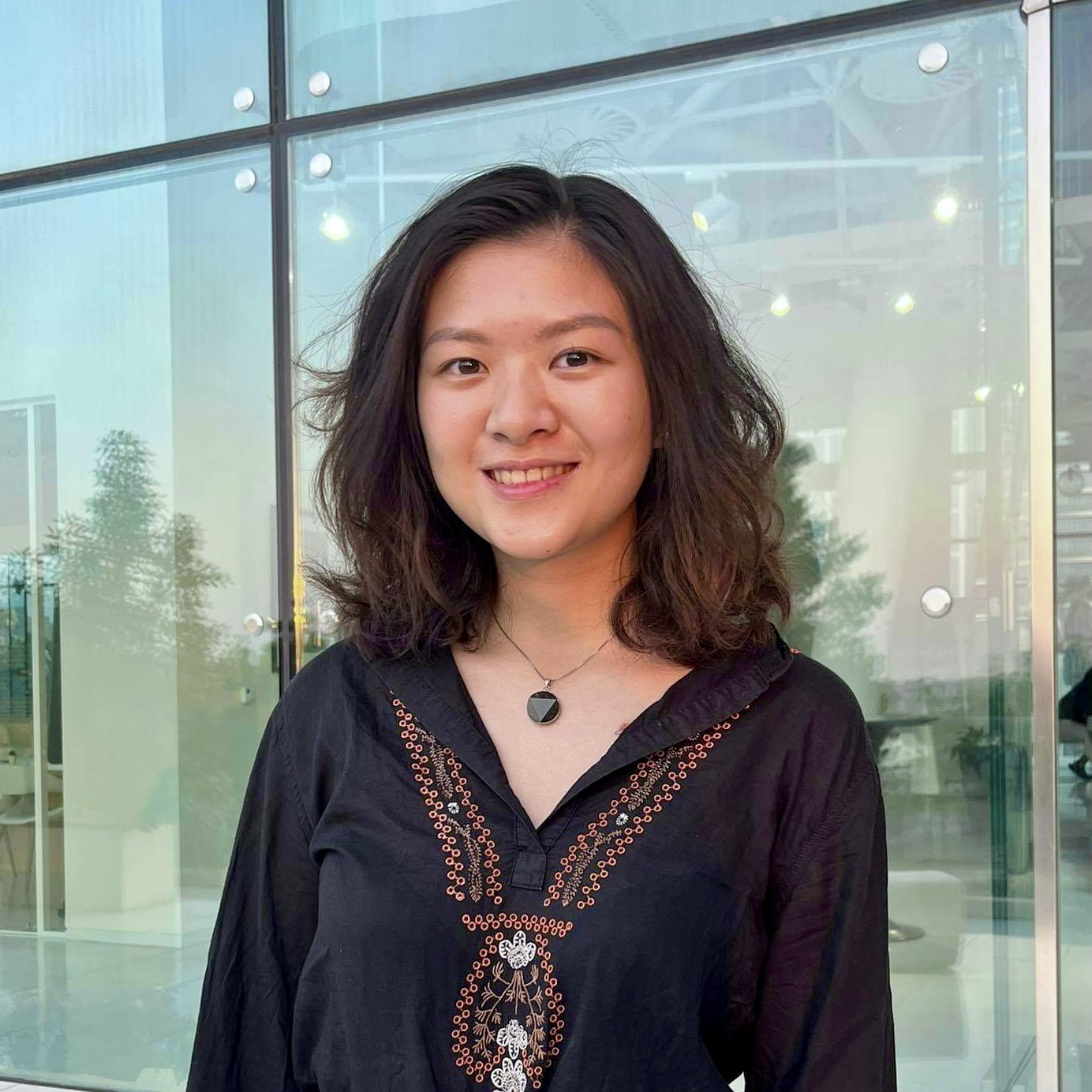
What is your motivation behind your passion on sustainability?
I’ve always been mesmerized by the wonders and balance of nature. As we depend on nature, I think it is essential that we as humankind learn to understand, respect, and even cultivate empathy towards the natural world. Ever since learning about the climate crisis and the environmentally-harmful systems that shape our everyday lives, I began exploring ways to make the world more sustainable by doing what I can through my personal self. This includes becoming a more environmentally conscious consumer, raising awareness, learning more about the climate crisis itself, and contributing to sustainability related initiatives. This was also the reason behind my interest in working as a research assistant for the Geopolitics and Ecology of Himalayan Water: I want to learn more about the impending water crisis one-third of the world population might face in the case of climate inaction.
How do you wish to implement sustainability into your field of study?
Although my capstone major, Interactive Media, may not seem to be sustainability focused, I am hoping to direct the seemingly unrelated field of study towards climate action. Since the causes and effects of the climate crisis are very intersectional, sustainability could and should be implemented in all sectors of the society, whether that’s science, media, or policy, to truly address the climate crisis and bring about change. To me, interactive media plays a crucial role in visual storytelling and creative digital representation of information and knowledge. This motivates me to widen and strengthen my skill sets, for which I have adopted a second major in Social Research and Public Policy and a minor in Environmental Studies to better prepare me for climate action in different fields. I wish to implement these skills into future works related to sustainability, including through my capstone in Interactive Media.
How have you contributed towards sustainability at NYU Abu Dhabi?
Since my first year, I have been a part of Ecoherence and the Student Government Sustainability Committee of NYU Abu Dhabi. With both of these groups, I contributed by providing opportunities for community members to become more sustainable. While this process was rewarding, I also realized my lack of knowledge about the outlook towards sustainability and climate action back home in Taiwan. This led me to research on Taiwan’s climate policies. . I joined a local Taiwanese NGO to contribute towards local sustainability initiatives and understand how local NGOs work towards advocating for climate action. Two other NYUAD Taiwanesee students and I also started a podcast channel in Mandarin with the overarching theme of world citizenship. Our definition of “world citizenship” isn’t traveling the world or knowing everything about the world, but using an empathetic and humanistic approach to critically and actively reflect and raise awareness on global and local issues. We’ve talked about a wide range of topics such as Eurocentrism, sustainability, feminism, racism, etc., hoping to normalize conversations about these topics in Taiwan and the wider Mandarin-speaking world. A common problem with climate inaction is the lack of urgency towards addressing the climate crisis. The need to understand the climate crisis and the potential to ideate solutions motivated me to join the Geopolitics and Ecology of Himalayan Initiative.
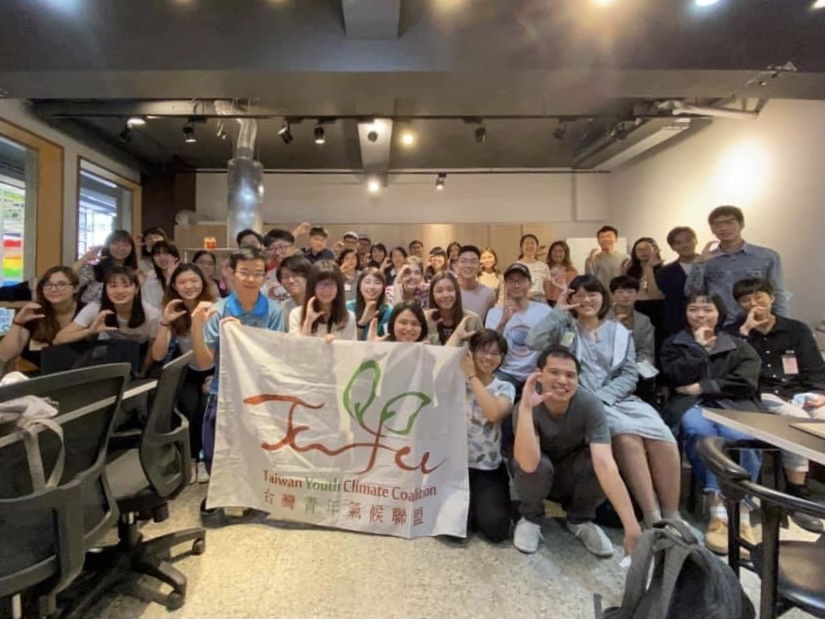
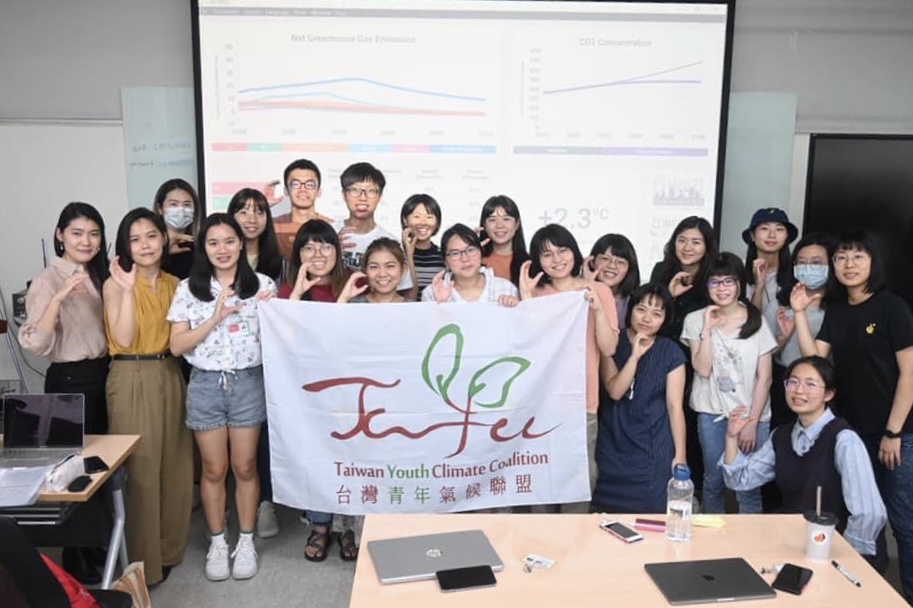
Conversation with Benjamin Strzelecki
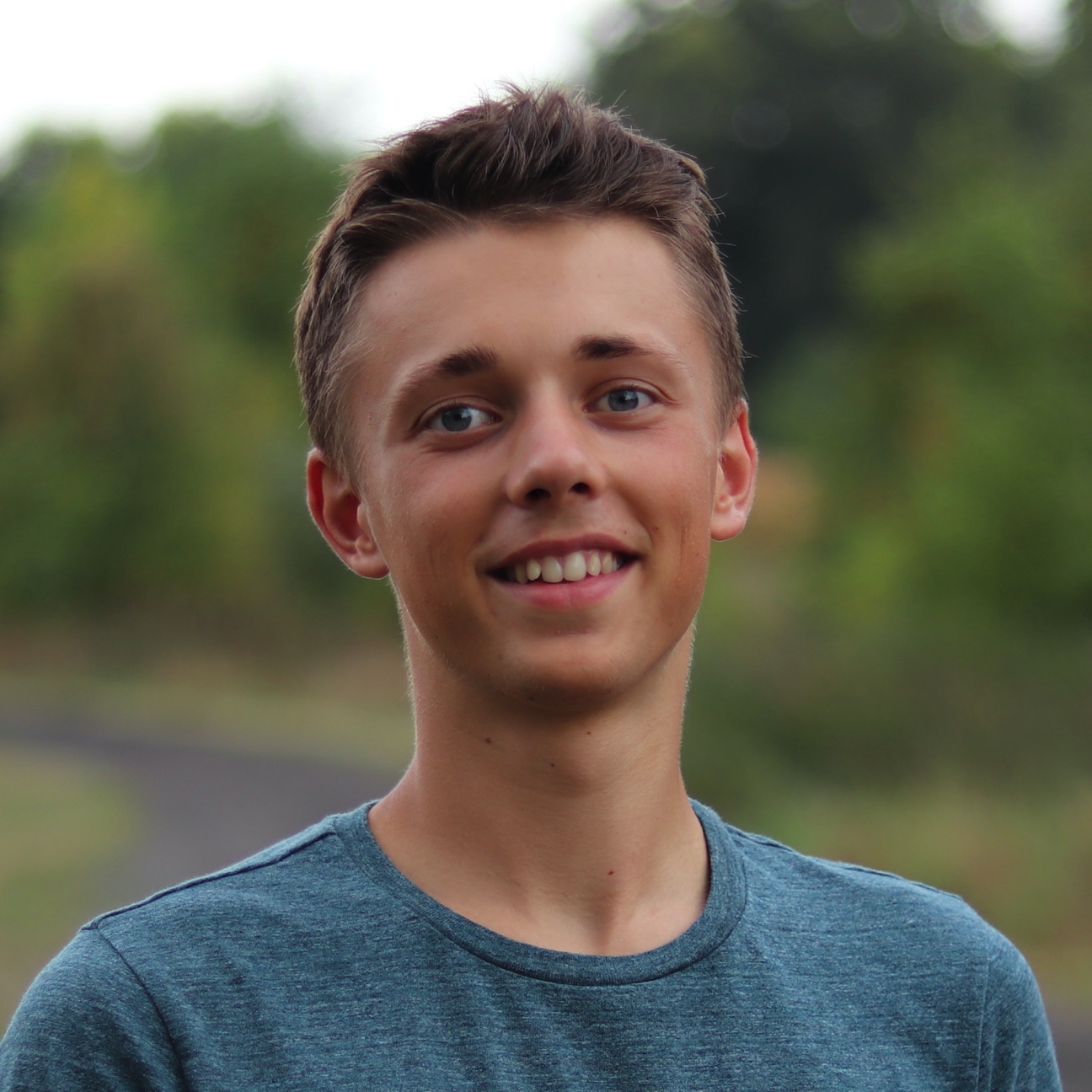
1. How have you made the environment part of your university experience at NYUAD?
Even before arriving at NYUAD, I was trying to understand how I could best get involved with environmental issues on campus because I want to both learn more about these issues and use my knowledge and skills to drive institutional change. From my first semester, I have been involved with the Sustainability Committee, Ecoherence, and Green House and I also look for ways to spark new projects, like the UAE Higher Education Climate Action Conference, which is currently in the preparations stage.
2. What do you hope to see NYUAD change in terms of sustainability in the coming years?
I think that NYUAD has good sustainability culture among the community members and I hope that we will be able to use this energy to changes how the campus operates and improve the curriculum. Personally, I hope that we will be able to infuse more consciousness about climate and environmental issues into all different majors so that NYUAD graduates will keep the well-being of the planet in their minds regardless of their career choice.
3. How did you get involved in the field of international climate policy, and how has this involvement impacted your studies and your goals for the future?
My involvement in this field was jumpstarted by my participation in COP25 in Madrid in December 2019 and in IRENA Assembly & Youth Forum in Abu Dhabi in January 2020. Through these events, I joined relevant youth organizations, where we advocate for climate action and clean energy transition. These engagements showed me how significant the climate and energy space is and gave me the inspiration and confidence that this is a pathway worth pursuing.
4. Can you tell us a bit more about the Higher Education Climate Dialogues?
This spring, New York University Abu Dhabi will host the first-ever student-led Higher Education Climate Dialogues. Over the last few years, universities, student groups, governmental agencies, and non-governmental organizations in the UAE have pursued numerous initiatives promoting sustainability in research, teaching, campus operations, and campus culture. The Dialogues aim to be a continuation of these efforts and take place in partnership with the local stakeholders. The organizing team of the conference is composed of students from NYU Abu Dhabi and the American University of Sharjah.
Environmental action as a function of racial resentment and political value framing in the United States
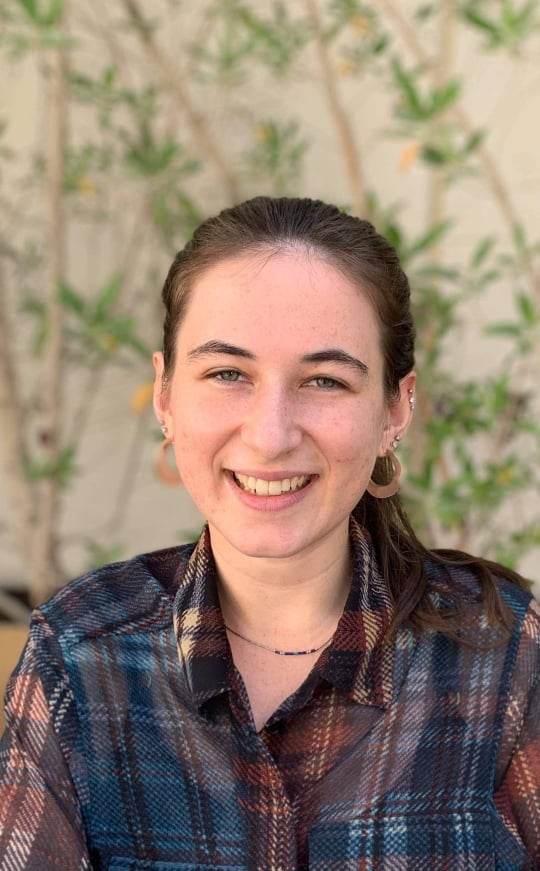
1. What made you want to do an environmentally focused capstone project?
Over the course of my four years at NYUAD, particularly during my study away experiences, the severity of environmental inequalities and far-reaching social impacts of pollution struck me again and again in almost every place I visited. During my time in Accra, where I took several courses centered around public health, I found that a majority of health challenges were in fact manifestations of environmental challenges, and that without thoroughly addressing the environment, any semblance equality and wellbeing would continually be jeopardized. I couldn’t help but wonder whether the environment would be a greater priority if the people most impacted by it weren’t already socially marginalized, allowing those with greater privileges (and power) to turn a proverbial blind eye. I began to see the environment as a keystone in health and socioeconomic progress. The recurring theme of environmental injustice prompted me to choose a capstone investigating the role of racism, political values, and environmental privilege in determining environmental action.
Encapsulating Climate Change in a Capstone
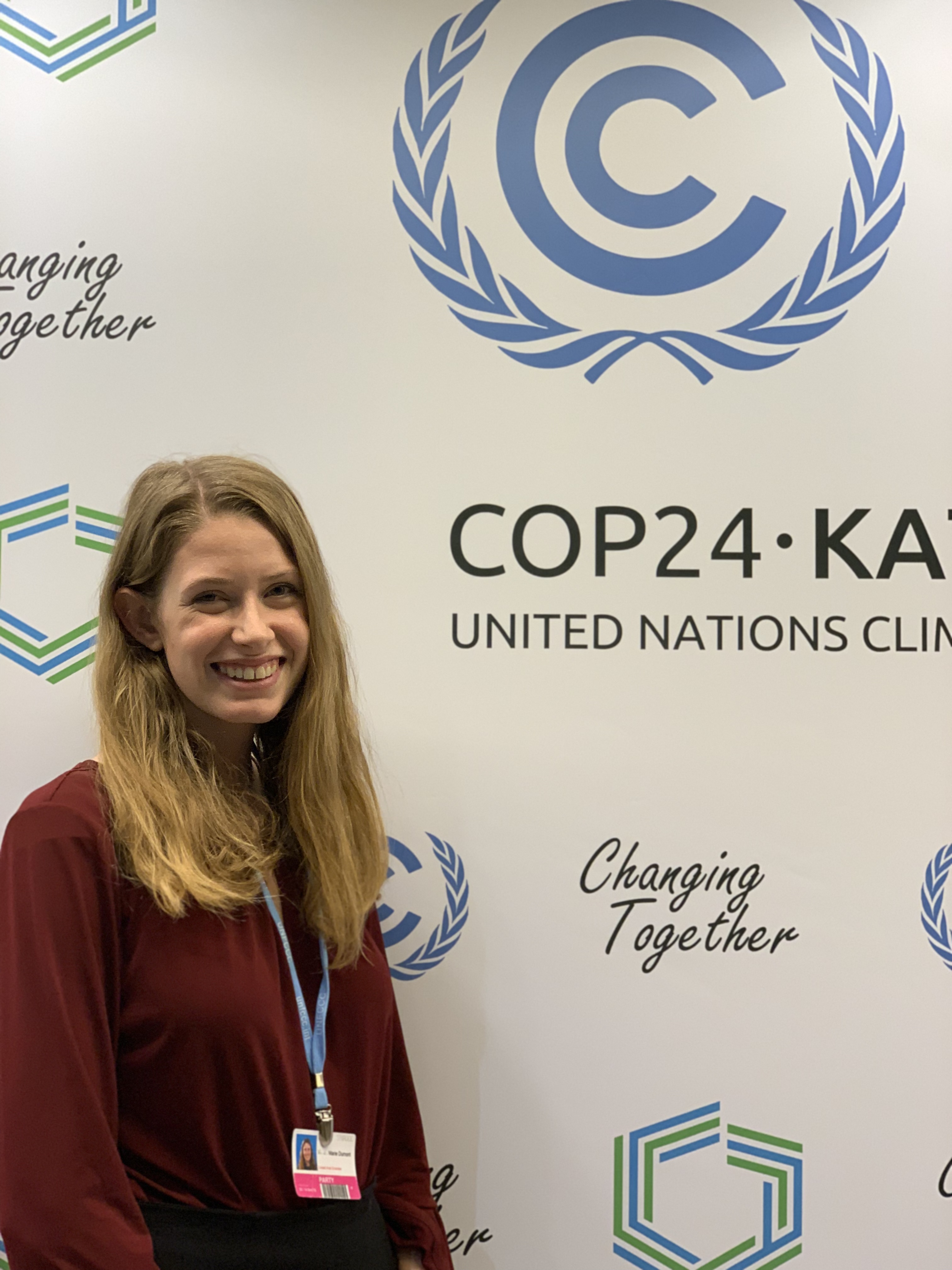
How do you study the climate crisis as a capstone? Climate change will change how society is organized, how we live our daily lives, how governments run their countries. So how do you narrow it down to a neat little project you can finish in a year, tie up with a bow, and present it at a capstone fair? When I first started thinking about doing a capstone on climate change I was overwhelmed and I didn’t know where to start.
Despite all of the discourse surrounding climate mitigation, and strategies for reducing emissions by 2050, climate change is not only a problem we will face in the future; it’s happening right now, and its effects are already creating large scale adaptation challenges that will only get worse. We may not see it yet in our day to day lives, but in some places around the world, climate change is an unignorable reality. When faced with a choice about my capstone topic, I wanted to bring this issue to light; to show that climate change isn’t just something we have to plan for in the future, but something we have to adapt to today. As an SRPP major I’m looking to ethnography to study the on the ground reality of a community adapting to climate change as it is happening. I still don’t have the answers for how to tie all of climate change into a nice little capstone package, but I have two promising ideas to start with.
Newtok Alaska is a tiny town on eastern edge of America’s largest state. Due to sea level rise and erosion caused in large part by our changing climate, it’s slowly drowning. To adapt, the entire town is undergoing a planned relocation. This case fascinates me because it’s a mini representation of what entire countries may have to do in the coming decades if we remain on our current emissions path. If I can get access to research in this community, it has the potential to illuminate countless examples of how we might plan and adapt for the change ahead of us. On the other side of the Atlantic Ocean, Moroccan NGO Dar si Hmad is working to combat
water shortages by harvesting fog from the tops of mountains using giant nets. With a dedicated ethnographic field school, this could be an opportunity to learn how new technology can help indigenous women adapt to the impacts of climate change.
To avoid catastrophe, we need to realize the urgency of this crisis. I hope that my capstone can help show that climate change is our current reality and not just our distant future. I want to illustrate how one community’s adaptation strategy can draw a path for the rest of the world as we face this crisis head on.
NYUAD Students Meet Minister of Climate Change and Environment
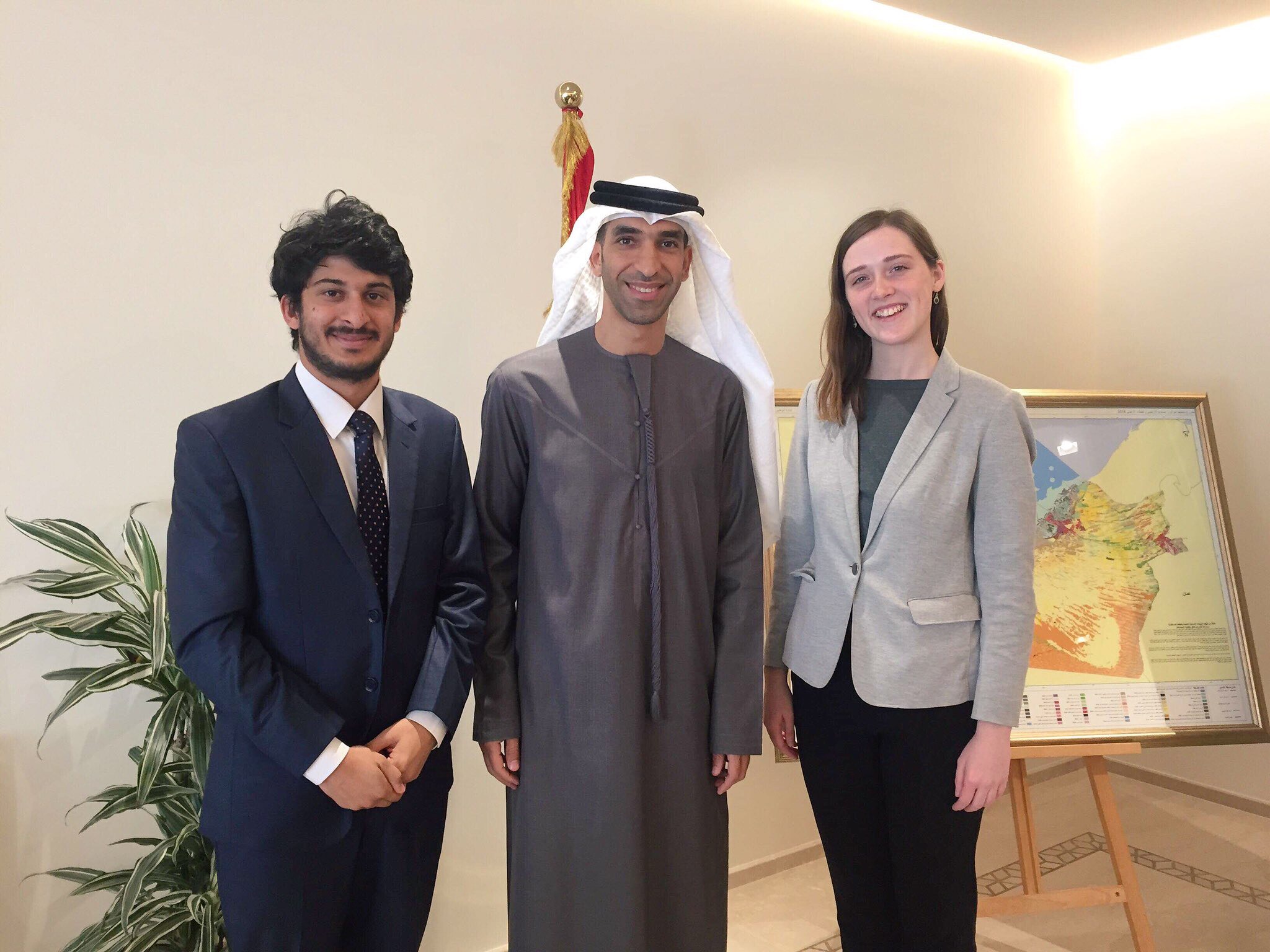
Read this text from student Hannah Melville-Rae’s visit with the Minister of Climate Change and Environment:
‘Rashtra and I met with H.E. Dr. Thani, Minister of Climate Change and Environment. We went with the goal of sharing with him our student perspective on how NYU Abu Dhabi can become a pioneer for sustainability in the region and were humbled to have the Ministerrespond to our vision very positively. He is connecting us with partners within and beyond the Ministry to help us achieve this vision and we foresee many more meetings over the coming months.’
Student Research
The GNU Sustainability guide gives a general overview of sustainability efforts and challenges across the three main campuses. The COP handbook has a section in pages 14-17 that specifically relates to NYU Abu Dhabi and climate change and sustainability issues.
Read the GNU Sustainability guide here.
